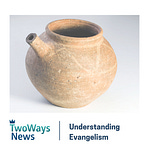I’ve been using the Book of Common Prayer (BCP) recently to structure my personal prayer and Bible times. I fudge my way around a bit—alternating between the Morning and Evening prayer services, the ‘word’ section of the Communion service, the Litany, and so on.
It’s been enriching and edifying in a number of ways, not least because of the power, precision and depth of so many of the prayers.
Here for the example is the special prayer set down for this week, the ‘collect’ for Whitsunday (Pentecost), and the days following:
God, who at this time taught the hearts of your faithful people by sending to them the light of your Holy Spirit, grant us by this same Spirit to have a right judgement in all things, and evermore to rejoice in his holy comfort; through the merits of Christ Jesus our Saviour, who lives and reigns with you, in the unity of the same Spirit, one God, world without end. Amen.
Like so many of the BCP collects,1 there’s a simple request in the middle of the prayer—that by the Spirit we might have a right judgement in all things, and rejoice in the Spirit’s ministry to us—but this short request is surrounded and supported by a rich theological frame. In fact, there’s almost complete biblical theology in there: Jesus’ promise to send the Comforter to enlighten his people, the coming of the Spirit at Pentecost to do just that in the hearts of those who have faith, and the living reign of Jesus, the King and Saviour, who in the unity of the Spirit is the God of the eternal world to come.
What the prayer asks for is also echoed in the New Testament’s teaching about the Spirit. It connects the illumining, enlightening work of the Spirit promised by Jesus to Paul’s teaching that the gift of the Spirit enables us to know the truth of Christ and ‘make judgements about all things’ (1 Cor 2:6-16); and it asks for the joy that is so frequently seen as a fruit of the Spirit’s presence (Gal 5:22; Rom 14:17; 1 Thes 1:6 etc.).
All of it in one 70-word sentence.
It almost seems a shame that this extraordinary prayer would be prayed only once a year—or at least every day during the week following Whitsunday each year.
We don’t much use the traditional church calendar these days, and I’m not especially advocating that we do. However, it’s interesting and encouraging to see how the prayers for the different times of the year are shaped by the biblical events and theology that are being remembered and read about in the set readings.
On Ash Wednesday, for example, at the beginning of the 40-day period leading up to Easter Day, there’s this prayer:
Almighty and everlasting God, who hates nothing you have made, and forgives the sins of all those who are penitent: create and make in us new and contrite hearts, that worthily lamenting our sins and acknowledging our wretchedness, we may receive from you, the God of all mercy, perfect remission and forgiveness; through Jesus Christ our Lord. Amen.
I can’t help thinking that there is a corrective going on here for the works-based asceticism that was associated with Lent in traditional Catholicism. The things we must give up during Lent are not the good created things of the world (none of which God hates) but our sins; and in repenting of these with a new and contrite heart that God himself has created in us, we receive complete and utter forgiveness from the God of all mercy. (It is also a beautiful prayer for the person who feels worthless and hateful, and who can’t quite believe that God would show love and mercy even to them.)
Not all the BCP prayers are occasional like this. Many of them get repeated often, sometimes daily—like the famous collect for peace:
O God, who is the author of peace and lover of concord, in knowledge of whom stands our eternal life, whose service is perfect freedom: defend us your humble servants in all assaults of our enemies; that we, surely trusting in your defence, may not fear the power of any adversaries; through the might of Jesus Christ our Lord. Amen.
The prayer is structured around a theological understanding of God’s character, what he has done through Jesus (the mighty and powerful risen Christ), and what our eschatological situation is in the world (given eternal life, liberated to serve God, but surrounded each day by enemies and adversaries). It’s a prayer that understands my situation, and explains it to me, even as I pray it. (I also smile to myself as I pray this prayer because, like me, God is a ‘lover of concord’—although perhaps it’s not Concord Golf Club that the prayer is referring to.)
The two other collects I come back to repeatedly are given at the conclusion of the Communion service, as prayers that may be used pretty much in any service or on any occasion. Here’s the first one:
Grant, we beseech you, Almighty God, that the words we have heard this day with our outward ears may through your grace be so grafted inwardly in our hearts, that they may bring forth in us the fruit of good living, to the honour and praise of your name; through Jesus Christ our Lord. Amen.
I often pray this one after I’ve read the Bible, and then go on to pray about specific things I have ‘heard with my outward ears’ in the passage, that God would graft them into my heart, and into the heart of others that I want to remember and pray for on that day.
And then this is the one I often conclude with before getting on with the business of the day:
Go before us, O Lord, in all our doings with your most gracious favour, and further us with your continual help; that in all our works, begun, continued, and ended in you, we may glorify your holy name, and finally by your mercy obtain everlasting life; through Jesus Christ our Lord. Amen.
I love this. It reorients me every day to what’s really going on as I go about my daily tasks. It casts a vision of God graciously going in front of us, like he did before the people of Israel (cloud by day, fire by night), and constantly leading us forward (‘furthering us’). The purpose of this is that by doing everything in the awareness of God’s constant presence and help (begun, continued and ended in him), the glory for our works might go to him (not us), and that by his mercy alone the final outcome might be everlasting life through Jesus Christ.
Again, so much theological depth in such a short prayer.
Like so many of the BCP prayers, praying this collect regularly not only (by God’s grace) calls forth the gracious divine help and supervision I need, but teaches me to trust him in everything.
The BCP keeps teaching me what prayer really is: a deep trust in God put into words.
PS
Some of you may know your way around the printed BCP well enough to use it for your own daily prayer and Bible reading, but if you’d like to give BCP daily devotions a try and want a guided way forward you can go to this site.
Choose the ‘traditional’ rather than ‘contemporary’ forms of the service. You’ll get the full thing each day, which may well be too long (in quantity of set Psalms and Bible readings especially). But the material is all there to pick your way through.
Many thanks for the encouraging feedback on last week’s post about teaching on topics and subjects in our ministries. Some of the suggestions that you sent in (as to how you create space for this kind of teaching in the midst of church life):
have an all-in, any-subject question time as a regular feature of your Sunday gathering (people can contribute questions in advance on any topic);
run the Moore College PTC course (or something similar) as a learning structure outside normal small groups (e.g. on Sunday afternoons);
put one school term aside each year as a ‘training term’, where small groups work on a topic (of doctrine or practical ministry) rather than a Bible book—either by coming together for the term, or by using topical studies or courses in the groups;
run ‘stretch nights’ or ‘hot topic’ nights at several points during the year (in which instead of going to small group that week, members come together at church to look in depth at a topic, perhaps with a visiting speaker). Some churches have made good use of Moore College’s Centre for Christian Living (CCL) as a resource for these nights—that is, encouraging small groups to go together to regular CCL events. (Some advance notice: I’ll be speaking at the CCL event that’s coming up on August 24 on the topic of ‘Deception’. More details to come.)
‘Collect’ is the BCP word for a short prayer set down for use in a particular place in the service, or for a particular time or occasion. I’ve modernized the English of the collects I’m quoting, but have basically retained the rhythms, metaphors and content of the original.











